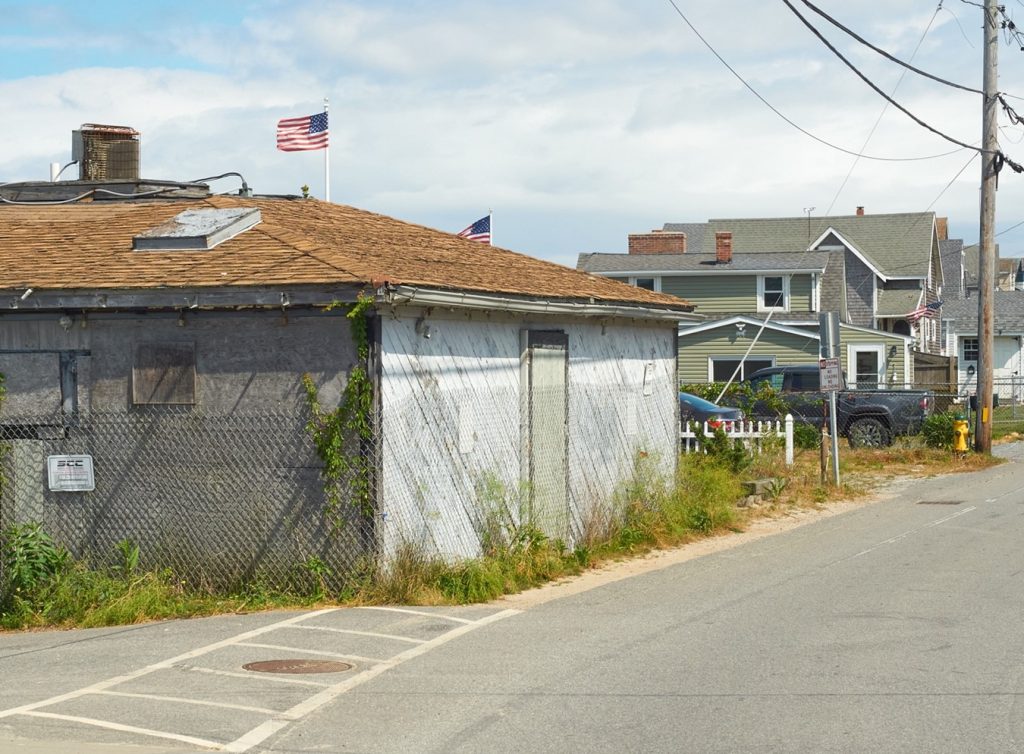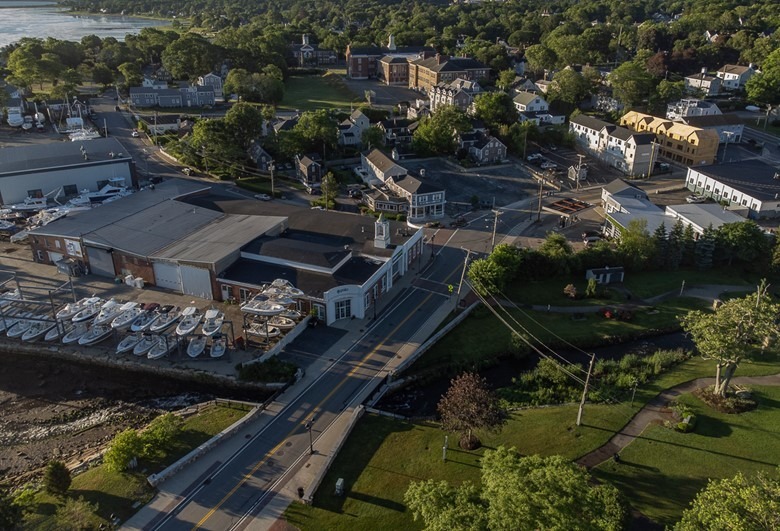Let’s start with a primer on the mechanics of Plymouth’s Town Meeting. Each spring and fall, it holds sessions to decide much of the direction of the community, including how tax dollars are spent. This fall’s town meeting is scheduled for Saturday, Oct. 19, in the Plymouth North High School auditorium, starting at 8 a.m.
Town Meeting is Plymouth’s Legislature, with 162 elected members. It is overseen by longtime town moderator Steve Triffletti, who only votes in case of a tie.
Each of Plymouth’s 18 voting precincts elects nine Town Meeting members to three-year terms. Those terms are staggered so that three members from each precinct are elected in May’s annual town election.
The public can attend Town Meeting in person. It will also be streamed live by The Local Seen. Anyone can speak at the meeting, even people who do not live in Plymouth, but they must wait until after Town Meeting members have spoken on a particular agenda item.
If all business is not conducted on Oct. 19 because of time constraints, the meeting can be extended to another session – in this case it would be on the evening of Oct. 21.
There are 33 articles on the warrant, which is the list of items approved by the Select Board for discussion and vote. Four were withdrawn, and Triffletti has ruled three articles out of order, so only 26 items will be considered.
Here are summaries of some of the most significant articles:
Article 10: Black Cat Road
The Community Preservation Committee voted unanimously to recommend funding the purchase of 90 acres from A. D. Makepeace, owner of the Redbrook development in South Plymouth. It was proposed by the Wildlands Trust and will be presented by David Gould, Plymouth’s director of Energy and Environment. The parcel is made up of former cranberry bogs at Black Cat Road, adjacent to the headwaters of Town Brook.
The property has been appraised at $1.15 million. The town has been awarded a grant from the state that would cover 90 percent of the purchase price, which means the cost to the town would be $115,000.
Gould said 70 acres would be restored to the kind of wetlands that once were on the land. He said the project would improve water quality for Billington Sea and Town Brook. The other 20 acres would be open space for walking and biking.
Article 11: Full Sail

The Community Preservation Committee voted unanimously in July to recommend buying six small properties at White Horse Beach, including the dilapidated building that once housed the Full Sail bar.
The bar had been shuttered for years when it was ravaged by fire in 2016. The town earlier tried to buy the property to raze the building and offer more public access to White Horse Beach but was unsuccessful.
If Town Meeting agrees with the recommendation, the town would pay the appraised price of $655,000 for the six properties, and allocate another $220,000 to demolish the structure, build a wheelchair-accessible path to the beach, improve the 24-car parking lot with gravel, landscape the parking lot and the beachfront, and possibly provide benches and shade sails like the ones already up at Stephens Field, according to David Gould, Plymouth’s director of Energy and Environment.
The six properties are assessed at $525,000, Gould said.
Article 16: Rezoning the waterfront for ‘village open space development’

Village Open Space Development zoning requires developers to reserve 40 percent of a project’s land as open space. When a developer comes before the Planning Board, explained chair Steven Bolotin, the board has the power to negotiate whether the public can have access to that space. In exchange, the developer would be allowed greater housing density – meaning more housing units with a smaller footprint.
“It gives us more control over what could happen in some of these areas,” Bolotin said.
He said the waterfront district issue came up in July, when developer Tom Drummond asked for the zoning change. Drummond wants to develop four acres of land just south of Hedge Road, on the shore in North Plymouth.
The Planning Board would have to waive requirements that the development have a minimum amount of street frontage and instead allow Drummond to create access through a right of way. The area is zoned for multifamily housing, but he wants to build up to five large single-family homes. To develop the property that way, he has asked for all waterfront development in town to be rezoned for village open space design, which would give him concessions such as building large single-family homes on a four-acre lot.
Bolotin pointed to other parcels that could benefit from village open space zoning.
“A lot of it has to do with the access ways into some of these parcels,” he said. “The parcel that originally brought this to our attention has an access problem. It’s accessed through, in essence, a driveway rather than a road.”
Bolotin said two boatyards in the waterfront district face similar hurdles to development if someone were to propose that they become something other than a boatyard.
“What we’d like to be able to do is offer people who own that an option rather than selling to a neighboring large development in order to have access,” he said.
Article 17: Creation of a land bank
This proposal would allow the town to ask the state for a home rule petition to create a Plymouth Land Bank.
The land bank would acquire property for open space and recreation, affordable housing, and municipal facilities such as schools, fire and police stations, and Department of Public Works facilities.
It would be funded by a land transfer fee of one-to-two percent on real estate transactions of $350,000 and higher. First-time homebuyers would be exempt, as would Plymouth residents, unless they are buying commercial property or an investment property. That means if you sold your home in Plymouth and bought another one in town, there would not be a transfer assessment.
Select Board members Kevin Canty and David Golden have been working with Planning Board chair Steven Bolotin and others to champion the land bank.
Bolotin emphasized that it would acquire land to create affordable housing that is less expensive than what passes for affordable housing under state standards, or through Plymouth’s inclusionary zoning bylaw. Under those standards, people whose household income is up to 80 percent of the Boston metropolitan area median qualify for affordable housing. The land bank would authorize affordable housing for people who make 60 percent or less of the median income.
“We’re approaching affordable housing in a way that no one else has really ever done,” said Golden. “This is going to affect folks who cannot afford to live in this community but who are contributing in ways that are significant to the health and the vibrancy of the community. It’s a game changer for affordability in town.”
Golden said he initially opposed the idea because he had worked with land banks in the past and found that they took property off the tax rolls because they were focused on conservation. That, he said, drove up property values (and, by extension, property taxes). He said he was won over by the fact that Plymouth’s land bank would, on top of being able to buy land for open space, also could purchase it for affordable housing and municipal use.
The Community Preservation Committee already has the authority to propose the purchase of land for open space and to fund affordable housing. But the state’s Community Preservation Act does not allow money to go toward purchasing land for municipal use, like a DPW building.
Bolotin said the land bank is not designed to replace the Community Preservation Committee but rather to supplement its work.
For example, he said, the Community Preservation Committee can only pay up to the appraised value of a property. The land bank would be able to pay market price, which would make it easier to close some deals.
But Town Meeting approval would be just the first step in establishing the land bank. The state Legislature also would have to sign off, and Plymouth voters would get the final say in a town election.
“A lot of people, when they have land, or entities that have land that they’re looking to sell, can’t wait around for the next Town Meeting,” Canty said. “This thing would be able to react to those opportunities as they come up, which would be good for Plymouth in terms of taking control of its own destiny, because right now, private landowners and developers are making decisions for the future of this community and the town has very limited opportunity to influence that.”
Canty cited The Oasis at Plymouth, a Chapter 40b development off Long Pond Road that was built on commercial land. Because of its 40b status, the developer was able to circumvent some zoning restrictions.
“Instead of being something that would help reduce the residential tax burden with commercial development, it is instead a large residential development that’s draining services,” Canty said.
Although the land bank would be able to buy property without Town Meeting approval, Town Meeting would have to agree to spending money for any building on the land or any other improvements, such as turning it into playing fields.
“This is just about acquiring land for these purposes,” Canty said, meaning open space, affordable housing, and municipal use.
A Land Bank Commission, empowered to run the land bank, would be appointed by several town bodies. The Select Board, the Committee of Precinct Chairs, and the Planning Board would appoint two members each. The Open Space Committee, the Land Use and Acquisition Committee, and the Affordable Housing Trust would appoint one member each.
Plymouth’s land bank would not set a precedent – Nantucket and Martha’s Vineyard have them, and Cape Cod used to have one. (The legislation that created the Cape Cod land bank expired in 2020.)
Article 21: School buildings
Articles 19 to 29 propose amending the Town Charter. Article 21 includes a proposal to remove language from the charter that makes the School Committee responsible for maintenance and management of school buildings.
The Charter Review Committee and the Select Board proposed the change to make it possible for the town side of government to assume control of school buildings.
The School Committee opposes the move, and initially opposed the charter change outright.
“A lot of people will tell you that we take better care of our buildings than the town,” said Michelle Badger, chair of the School Committee.
But Badger said the School Committee is not opposed to consolidation of some duties – such as snow removal or the information technology help desk – with the municipal side of town government.
Badger said it is also important that the schools maintain independence in buying equipment. Such purchases are now incorporated into the School Committee responsibilities for buildings.
“We have adaptive technology that needs to be purchased,” she said, citing one example. “Our students’ needs are really important.”
But Steve Bolotin, a member of the Charter Review Committee, said even if the School Committee changed its mind someday and decided it wanted to delegate maintenance to the town, it could be argued that the town charter does not allow it. The charter can only be changed with the approval of the state Legislature.
Bolotin, who supports the charter change, argues that if Town Meeting wants to keep school maintenance under the control of the School Committee, it can best do that in a town bylaw, which can be changed by the Town Meeting later if it should decide for some reason that the town side of government should assume control of school buildings.
As part of a compromise to get the School Committee to support Article 21, the Select Board proposed such a bylaw for the Spring Town Meeting, in April. It would keep school buildings and maintenance under the School Committee.
“We’ll still have the same duties and responsibilities,” said Michelle Badger, chair of the School Committee, who opposes taking the school buildings out of the control of the School Committee but was won over by the proposed compromise. “It’ll just be in the bylaw instead of in the Charter.”
She said the schools and the towns are already cooperating in some areas.
“If the town needs an electrician, we are able to help the town out,” Badger said. “If we need snow removal, the town helps us out.”

“For us, this was all about flexibility,” said David Golden, former chair of the Charter Review Committee and now a member of the Select Board, who supports the change. “If the town, through the Select Board, and the School Committee decide that they want to create shared services for facilities maintenance in the future, then there’s not a barrier in the charter.”
But the Charter Review Committee vote was not unanimous. Joseph Hutchinson, who voted against recommending the change, said schools should remain separate from the town budget.
“They might need funding for laptops,” he said. “They might need funding (for equipment) for special needs (students). You want to give them operational control over how their budget gets spent, and I don’t like the idea of giving that up.”
Article 25: Advisory and Finance Committee appointments

The Advisory and Finance Committee is widely considered to be the most important unelected committee in town government. It makes final recommendations to Town Meeting on whether to approve or reject articles.
Currently, the town moderator appoints members of the Advisory and Finance Committee.
This article, proposed by the Charter Review Committee, would instead have a committee appoint FinCom members. That committee would be chaired by the town moderator. The Select Board, the Planning Board, the Committee of Precinct Chairs, and the School Committee would each appoint one member.
“We don’t currently know how the appointments are accomplished for the Advisory and Finance Committee,” said David Golden, former chair of the Charter Review Committee and a Select Board member. “We don’t know the qualifications. We don’t know the applicants. We don’t see advertisements for open positions. When positions are open, we don’t know how those people are contacted.”
Golden said the Charter Review Committee wanted to see an open process instead of one controlled by the town moderator.
“We thought that we owed it to the community to bring the appointments process into the light of day,” he said.
The Advisory and Finance Committee opposes the article. In a proposed amendment to Article 27 that would have to be voted on before the main article is voted on, the Advisory and Finance Committee says it is against allowing elected officials to appoint FinCom members, citing a conflict of interest. It proposes instead that the moderator appoint its members in an open meeting.
Town Moderator Steve Triffletti disagrees, saying that the changes aren’t needed.
“I’ve been doing it for 33 years,” Triffletti said of his post. There have not been many complaints about his appointments, he said.
Triffletti said that because the Advisory and Finance Committee advises Town Meeting, it is appropriate that the town moderator make FinCom appointments. He added that it is the town’s largest committee, with 15 members and frequent resignations. By having the power to act on appointments alone, he has been able to fill vacancies quickly, he said.
“Either under a committee approach or public hearings, the appointment process will be delayed,” Triffletti said. “When a process is not broken, it is difficult to understand why there is a need to fix it.”
Fred Thys can be reached at fred@plymouthindependent.org.

